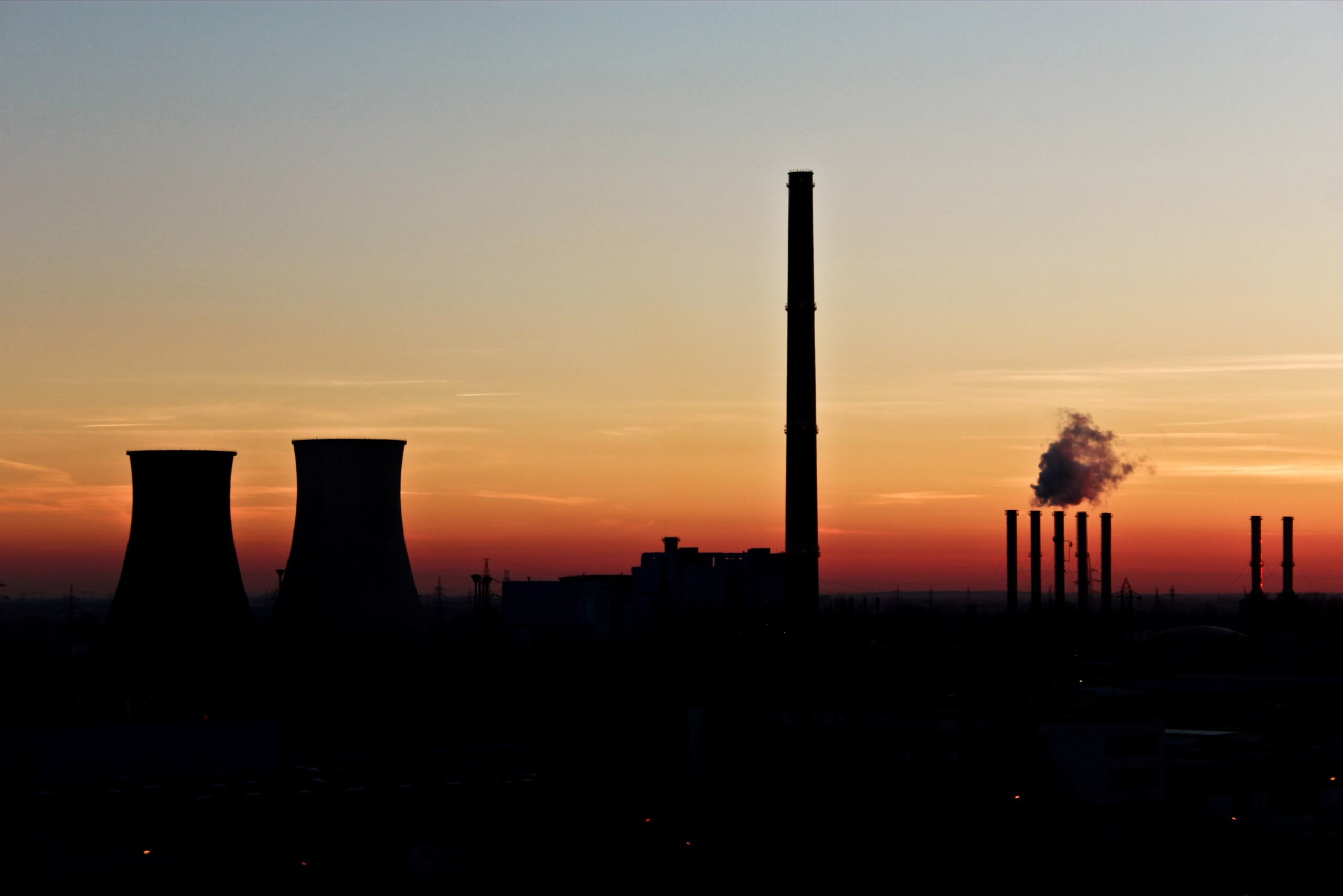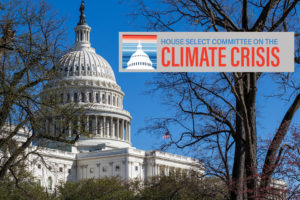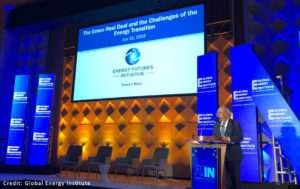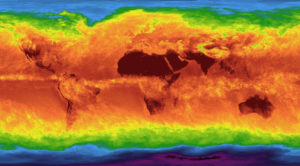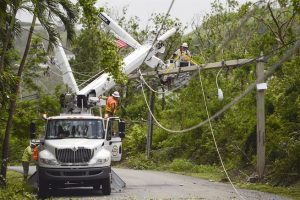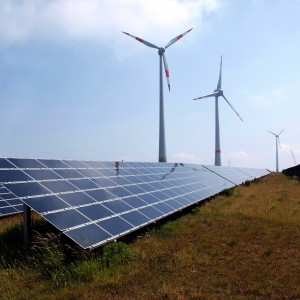30 item(s) were returned.
Much effort is being devoted to decarbonizing the energy sector quickly, efficiently, and economically—while still being able to provide affordable and reliable energy. In OurEnergyPolicy’s September 30, 2020, webinar, Paula Gold-Williams (President and CEO of CPS Energy) and Gil Quiniones (President and CEO of the New York Power Authority [NYPA]), gave their perspectives, as heads of two of the largest utilities in the country, on driving decarbonization while not undermining reliability. Both CPS Energy and NYPA are striving to meet the goal of becoming carbon neutral by 2050, an objective that is in line with various existing and potential climate… [more]
View InsightThe U.S. House of Representatives Select Committee on the Climate Crisis is requesting information around policies that Congress should adopt to solve the climate crisis and adapt to the impacts of climate change. Committee staff told us they would welcome feedback from OEP experts. Four specific questions from the committee’s request for information are outlined below. We will compile and send to the committee substantive comments posted to this discussion by November 11. U.S. electricity generation from wind power is more than 7 times higher today than it was in 2017, and U.S. solar power generation is 100… [more]
View InsightPresident and CEO
Energy Futures Initiative
I recently unveiled the framework for a “Green Real Deal” on behalf of the Energy Futures Initiative at the U.S. Chamber of Commerce’s Energy Innovates conference in Washington, D.C. Building upon several months of analytical work, the Green Real Deal framework offers broad principles that are based on a commitment to realistic, actionable, and meaningful progress towards a low-carbon economy. The Green Real Deal must be a very pragmatic program data-driven, science-based, and analytically supported. Principles like innovation are at the core of the solution. A wise and just transition to a low-carbon economy, moving as fast as is technically… [more]
View InsightCEO
Milepost Consulting
New and emerging innovations in renewable energy suggest the real possibility—probability even—of a future where everyone has access to abundant clean energy. While supporting these advancements is vital to a sustainable future, it is perhaps more crucial that our legislators create and codify solid energy efficiency standards that can reduce our carbon emissions. In 2018, roughly 69% of energy produced in the United States was lost, most often in the form of waste heat, such as exhaust from cars and furnaces. As we shift to new sources of power generation, policy work around minimizing energy waste will help to show… [more]
View InsightChair, Energy & Commerce Subcommittee on Environment & Climate Change, U.S. House of Representatives
Co-Chair, Sustainable Energy & Environment Coalition
Americans are living, and dying, in the path of unprecedented flooding, raging wildfires, and battering storms driven by Earth’s changing climate. Regardless of the origins of our predicament, we have inherited these conditions. It falls to us to set aside past disagreements and rise together to meet this challenge through federal climate action. The principles outlined here, and in greater detail at Tonko.house.gov/climate, are meant to provide a framework that moves the lines of our agreement forward and help us build a comprehensive national climate action plan together. This is an appeal to everyone who takes solving the climate crisis… [more]
View InsightPresident
The Stella Group, LTD
According to the Fourth National Climate Assessment, humans are the dominant cause of global temperature rise, which many believe is directly responsible for the increased intensity of extreme weather events. The assessment shows that extreme events have cost the U.S.more than $1.1 trillion since 1980, and also warns that “The frequency and intensity of extreme high temperature events are virtually certain to increase in the future as global temperature increases”. We have only to look to Texas, Florida, and Puerto Rico where major hurricanes caused catastrophic damage to the electric grid creating heightened concern for resiliency. The inability to re-establish… [more]
View InsightCo-Executive Director
The Institute for Carbon Removal Law and Policy, American University
The Paris Agreement establishes the objective of “[h]olding the increase in the global average temperature to well below 2°C above pre-industrial levels and to pursue efforts to limit the temperature increase to 1.5°C above pre-industrial levels . . .” However, in the negotiations leading up to Paris, and in its aftermath, it has become increasingly obvious that meeting even the less stringent of these two goals may prove extremely daunting. As a result, new technologies and alternative methods of generation, such as bioenergy, are receiving increased attention. Policymakers and climate scientists believe the only way to avoid passing critical climatic… [more]
View InsightProfessor of Physics
City College of the City University of New York
Encouraging energy R&D, substituting solar, wind, and safe nuclear energy for fossil fuels is a big plus for safeguarding the global environment. But it is also a vital step in fighting terrorism. For many decades, the Organization of Petroleum Exporting Countries, or OPEC as the international cartel is commonly known, successfully regulated world oil supplies and thereby the price of a barrel of oil on the international market. By doing so it filled the national treasuries of Saudi Arabia, Iran, Iraq, Venezuela and nine her nations across the globe, giving them an outsized role on the stage of world affairs,… [more]
View InsightPolicy Associate
EESI
Although the administration’s finalized Clean Power Plan was released in early August, EPA is still actively grappling with the rules regarding biomass feedstocks as a compliance option under the Plan. Biomass (or biogenic) feedstocks include wastes such as organic wastes, lumber, pulp and paper industry wastes, agricultural residues and purpose-grown feedstocks. Solid biomass can be co-fired with coal in existing plants or used in renewable heating applications. The biomass industry argues that the utilization of biomass as an electricity source is an attractive option for states as it has the potential to sequester carbon as additional feedstocks are grown, it… [more]
View InsightLead Senior Economist
Environmental Defense Fund
What determines the cost of a ton of coal? Is OPEC an oligopoly? Should we subsidize low-carbon energy or tax fossil fuels? Do Prius owners drive more? These are among the questions I cover in my Economics of Energy class. I’ve taught this class at Columbia University’s School of International and Public Affairs for the past five years. I hope to receive your feedback on how to improve this course. The course has two goals: to provide a set of tools to approach these and many other fundamental questions in energy economics, and to do so in plain English. Last… [more]
View Insight